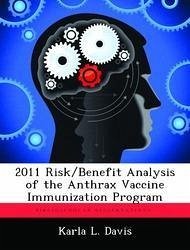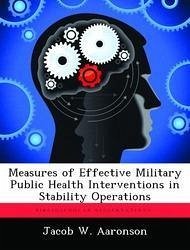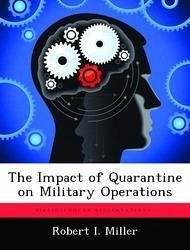
2011 Risk/Benefit Analysis of the Anthrax Vaccine Immunization Program
Versandkostenfrei!
Versandfertig in über 4 Wochen
52,99 €
inkl. MwSt.
Weitere Ausgaben:

PAYBACK Punkte
26 °P sammeln!
Safety, efficacy, and legal concerns surrounded the Department of Defense (DoD) Anthrax Vaccine Immunization Program (AVIP) in the early and mid-2000s. Production capacity, patient refusals, and legal injunctions limited vaccine delivery during this time period. Since 2007, the Anthrax Vaccine Adsorbed (AVA) has been administered to all service members deploying to high-risk areas except those medically or administratively exempt. This thesis evaluates the current AVIP in terms of associated risks and benefits. Aggregate data from long-term studies and review by multiple scientific organizatio...
Safety, efficacy, and legal concerns surrounded the Department of Defense (DoD) Anthrax Vaccine Immunization Program (AVIP) in the early and mid-2000s. Production capacity, patient refusals, and legal injunctions limited vaccine delivery during this time period. Since 2007, the Anthrax Vaccine Adsorbed (AVA) has been administered to all service members deploying to high-risk areas except those medically or administratively exempt. This thesis evaluates the current AVIP in terms of associated risks and benefits. Aggregate data from long-term studies and review by multiple scientific organizations, both within and external to the DoD, suggest that the AVA is both safe and efficacious. The DoD has tailored the current AVIP policy to protect forces with anticipated high exposure risk. This tailored vaccination policy minimizes vaccine-associated risk for individuals and for the force. Current AVIP benefits for individuals and for force protection outweigh the risks. As risks and benefits change over time, ongoing assessment is essential to ensure that individual and force health promotion are optimized. Continuing long-term scientific safety and efficacy research, ongoing educational efforts, and recognition of patient concerns are essential for the continued success of the AVIP and other force protection programs.














